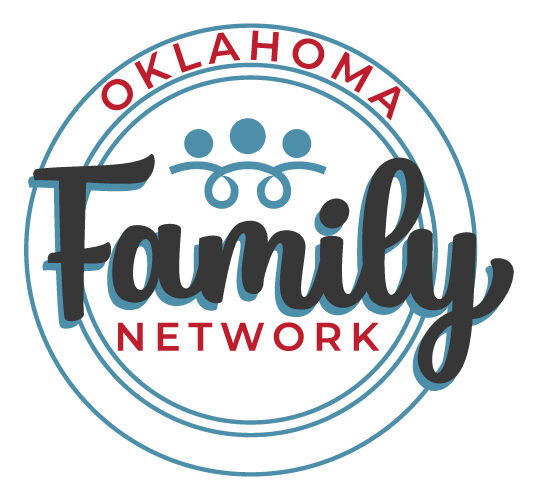Citizenship

The handouts and guides below are designed to help with citizenship needs. For organizations that help with citizenship needs, please visit our resource directory.
Military Families
The Exceptional Family Member Program (EFMP)
Tricare: The Extended Care Health Option
STOMP: Specialized Training of Military Parents
MilitaryOneSource EFMP Resources
The Acadia Healthcare Military & Family Support Services
DOD Office of Special Needs Educational Directory for Children with Special Needs
Operation Autism
American Military Families Autism Support
Algorithms for Navigating Intervention and Funding Systems
DOD Special Needs Toolkit
Holiday Help
How I Survive the Holidays by Laura Warren
The Dougy Center. holiday help
Military Families
Tricare: Tricare offers several programs to assist families with special needs. Extended Healthcare Option (ECHO) offers services, equipment, or supplies beyond those available through Tricare Prime, Extra, or Standard. Echo Home Health Care (EHHC) is also available. EHHC provides homebound family members with intensive home health care services.
EFMP:The Exceptional Family Member Program (EFMP) works with military families with special needs to address their unique needs throughout the assignment process and after families have settled into their new installation.
ECHO: The Extended Care Health Option provides financial assistance to beneficiaries with special needs for an integrated set of services and supplies.
EHHC: Echo Home Health Care benefit provides medically necessary skilled services or respite care to ECHO beneficiaries who are homebound and generally require more than 28 to 35 hours per week of home health services.
STOMP: Specialized Training of Military Parents STOMP is the only National Parent Training and Information Center for military families providing support and advice to military parents without regard of the type of medical condition their child has. http://www.stompproject.org/
MilitaryOneSource EFMP Resources: The Exceptional Family Member Program (EFMP) works with military families with special needs to address their unique needs throughout the assignment process and after families have settled into their new installation. Use these resources, tools, and articles to learn more about EFMP and the families it serves.
Operation Homefront: A 501(c)(3) nonprofit organization, Operation Homefront was formed in February 2002. It was developed to support the families of deployed service members immediately following 9/11. Operation Homefront is headquartered in San Antonio, Texas, and has evolved into a major nonprofit. The organization currently provides services to military families across the nation with 23 locations serving 43 states. The national office handles cases in states that do not have their own local offices. The majority of our clients are the lowest-paid service members, the E-1 through E-6 enlisted ranks.
MSNN: Military Special Need Network- The Military Special Needs Network is a peer-to-peer, global organization founded to respond to the family support needs of all branches of the military and of our Exceptional Family. We strive to provide family and emotional support and lasting friendships.
USA 4 Military Families Initiative: Is seeking to engage and educate state policymakers, not-for-profit associations, concerned business interests and other state leaders about their military members and their families.
Acadia Healthcare: Military Support Service Program is specially designed to help our Active Duty Service Members and their families focus on healing from the trauma of living through life-threatening events and human tragedy while courageously performing their military duties to maintain our freedom. Our highly qualified professionals stand ready to provide first-class mental health care, and unequaled substance abuse recovery and rehabilitation through our network of TRICARE certified facilities.
DOD Office of Special Needs Educational Directory for Children with Special Needs: The Education Directory for Children With Special Needs provides military families with children with special needs the information they need to make informed assignment decisions and easier transitions.
Operation Autism: Directly supports U.S. military families touched by autism and autism spectrum disorders. It serves as an introduction to autism, a guide for the life journey with autism, and a ready reference for available resources, services, and support.
AMFAS: American Military Families Autism Support:American Military Families Autism Support is a grassroots effort started in 2008 by military families, for military families, providing news, information, contacts and options for military families dealing with autism spectrum disorder. Due to the nature of military life and the challenges of autism, these families often experience additional stressors over non-military families.
Algorithms for Navigating Intervention and Funding Systems: The Military Family and Autism. These algorithms are built as flowcharts that help you organize the steps involved in acquiring funding and services as soon as possible. Both algorithms assume that diagnosis have already been made.
ATMF: Autism Care and Treatment for Military Families: ATMF has helped many military children access effective treatments and quality of life supports which were previously unattainable.
Military K-12 Partners: Impact Aid for Children with Severe Disabilities Program:Reimburses Local Educational Agency (LEA) for money previously spent on military dependent children with severe disabilities. whichwere previously unattainable.
DOD Special Needs Toolkit: contains 110 pages of comprehensive information and tools geared towards helping military families with special needs children navigate the maze of medical and special education services, community support and benefits and entitlements. Each module contains valuable resources and important facts; record keeping tools and sample letters have also been incorporated. The Tool Kit is divided into six colorful modules that can be easily downloaded and printed or saved on to a CD.
The Tool Kit content was developed and reviewed by the military Services Exceptional Family Member Program Managers, TRICARE, DoD Education Activity and Specialized Training of Military Parents (STOMP) Project. However, the most valuable contributions came directly from advocates and military families with special needs children.
Give Parents a Break Program: Military families are subject to unique stresses due to the nature of the military life- deployments, remote tours of duty, extended working hours, etc... Families are often separated from spouses as well as from extended family members who might otherwise offer support. Through a referral system and sponsored by the Air Force Aid Society, child care is available to eligible families a few hours a month from the stresses of parenting.
To be eligible for the program, families must be referred by one of the following base officials:
- Squadron Commander / First Sergeant
- Chaplain
- Doctor or other medical professional
- Family Advocacy personnel
- Airman and Family Services Flight personnel
Families eligible for the program would include those feeling stress due to:
- Any military member being deployed or TDY
- Having a child with special needs
- An emergency situation, such as illness of a family member
- The family recently moving to the base
- Unique circumstances or hardships

